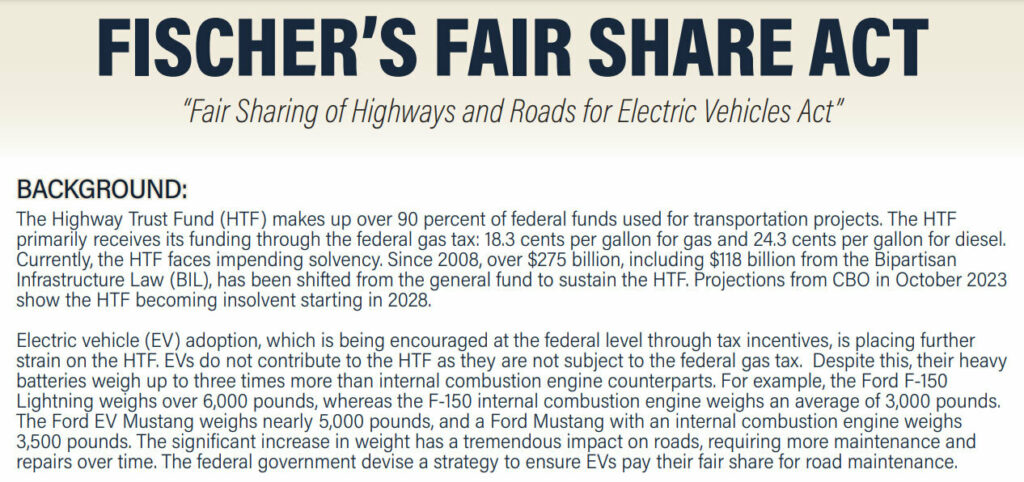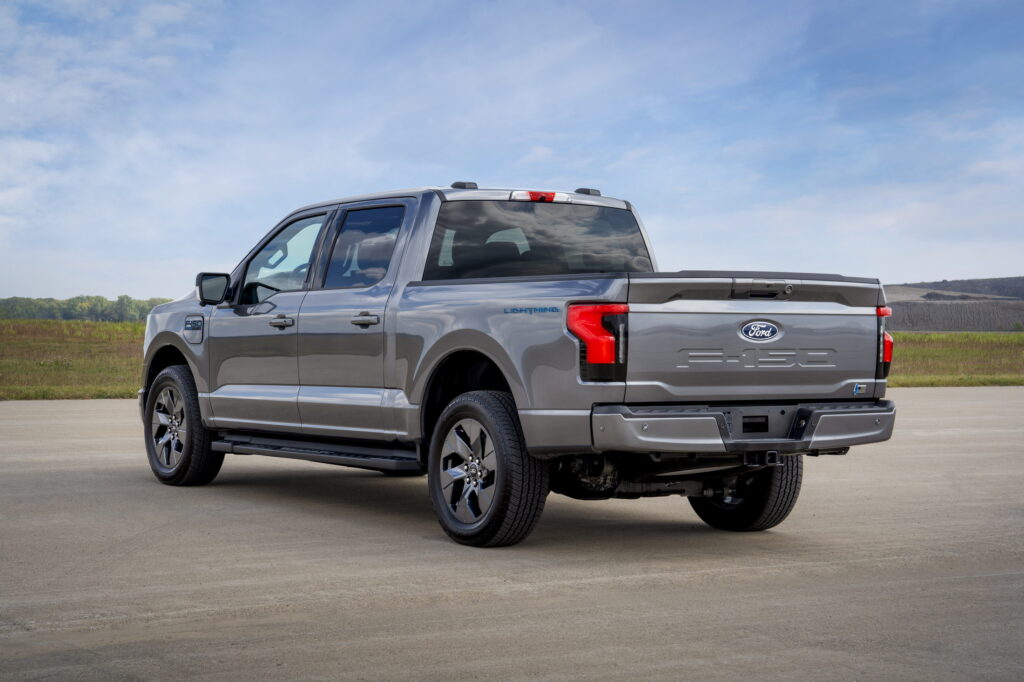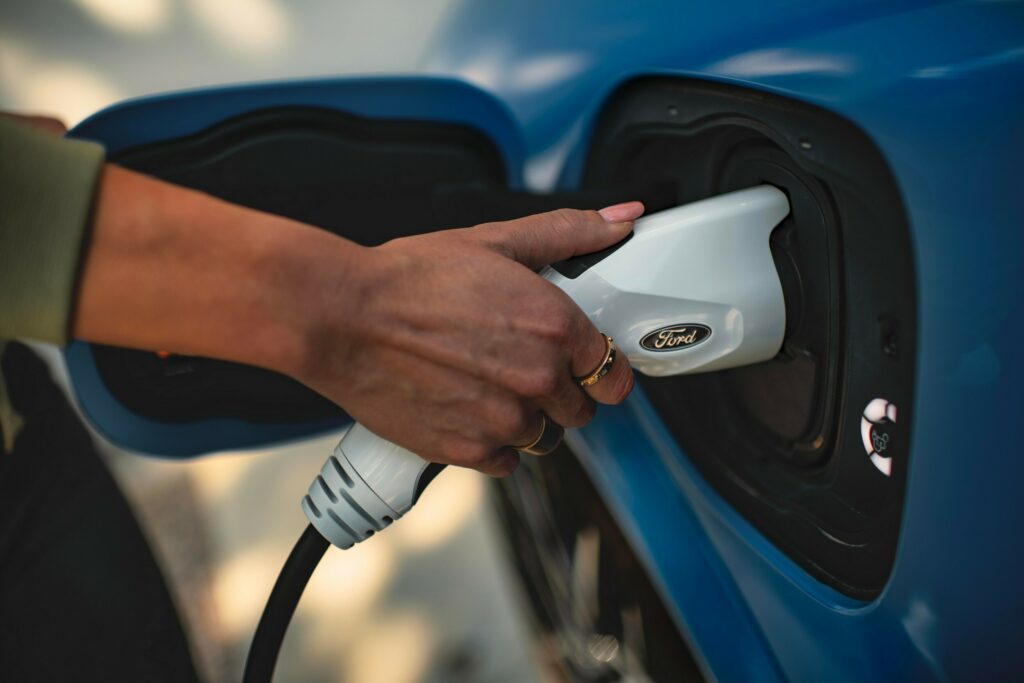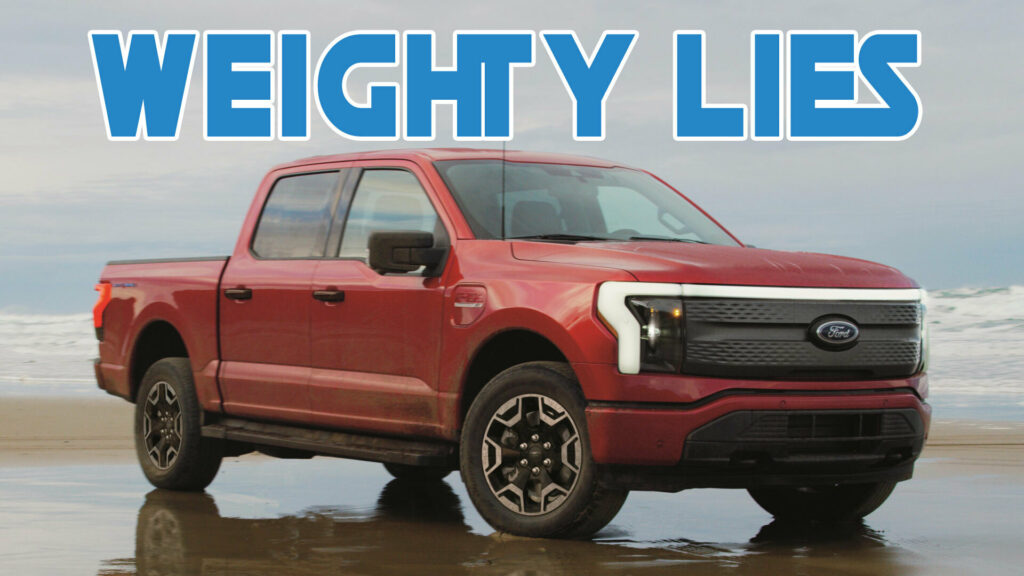- Congressional Republicans have proposed a two-tier tax on EVs.
- It would include a flat $1,000 fee as well as a separate $550 fee for heavy batteries.
- Documentation supporting the legislation is full of false and misleading information.
The war on EVs continues as Congressional Republicans have introduced legislation that would levy a new tax on them. It’s billed as the “Fair Share” act and it wants to institute new fees to ensure electric vehicle owners are paying for infrastructure.
As the office of U.S. Senator Deb Fischer (R-Neb) explained, gas taxes help support the Highway Trust Fund which is used to pay for the construction and maintenance of roads and bridges. Electric vehicles don’t use gas or diesel, so they don’t pay fees despite using the same roads and bridges.
More: California Considers Charging Drivers Per Mile As Gas Tax Dwindles Due To EVs
While we’ve already seen similar efforts on a state level, this is a national effort that attempts to level the playing field as the federal tax is 18.3 cents per gallon for gas and 24.3 cents per gallon for diesel. It aims to do this with a two-tier fee structure that would “impose a one-time fee of $1,000 on all-electric vehicles at the manufacturer level, at the point of sale.” This is designed to represent a ten-year life span as “light-duty vehicles with internal combustion engines have an average lifespan of 100,000 miles (160,934 km), which equates to approximately 10 years.”
While the average vehicle in the United States is 12.6 years old, we’ll skip that and mention the second fee. It’s a one-time charge of “$550 on each battery module with a weight greater than 1,000 pounds (454 kg).”

This is seeking to penalize EVs, which have big batteries and are heavier than their ICE-powered counterparts. However, a one-sheet put out by Fischer’s office is full of incorrect and misleading information.
In particular, it claims the “Ford F-150 Lightning weighs over 6,000 lbs (2,722 kg), whereas the F-150 internal combustion engine weighs an average of 3,000 lbs (1,361 kg).” While the F-150 Lightning has a curb weight of between 6,015 lbs (2,728 kg) and 6,893 lbs (3,127 kg), it’s nowhere near twice as heavy as the regular F-150.
Quite the opposite as the ICE-powered truck weighs between 4,391 lbs (1,992 kg) and 5,950 lbs (2,699 kg). The latter number is just 65 lbs (29 kg) more than the Lightning and no F-150 is even close to weighing 3,000 lbs (1,361 kg), let alone on average.

While the F-150 weight was straight up false, Fischer’s office doubled down on dubious stats. This time the one-sheet said, “The Ford EV Mustang weighs nearly 5,000 lbs (2,268 kg), and a Ford Mustang with an internal combustion engine weighs 3,500 lbs (1,588 kg).”
Those numbers are misleading as the 2024 Mustang Mach-E weighs between 4,595 lbs (2,084 kg) and 4,979 lbs (2,258 kg). The Mustang, on the other hand, weighs between 3,588 lbs (1,627 kg) and 3,993 lbs (1,811 kg).
Here, it appears Fischer’s office cherry-picked numbers – going for the lightest Mustang and the heaviest Mustang Mach-E – but they didn’t even acknowledge the obvious. The Mustang Mach-E is a crossover, while the regular Mustang is available as a coupe and convertible. They’re two totally different vehicles, so comparing their weights is pointless.

Despite this, Fischer released a statement saying “EVs can weigh up to three times as much as gas-powered cars, creating more wear and tear on our roads and bridges. It’s only fair that they pay into the Highway Trust Fund just like other cars do.”
Her sentiments were echoed by U.S. Senator Cynthia Lummis (R-Wyo.) who said, “EV drivers use our highways just as much as gas-powered vehicles, yet they are currently exempt from paying into the Highway Trust Fund because the Biden administration wanted to score points with its radical climate change base. The days of liberal elites in their expensive EV’s getting a free pass are over; they are contributing to wear and tear on our roads, and they should be forced to pay their fair share in repairs just like the rest of us.”
Outside of the Senate, U.S. Representative Dusty Johnson (R-SD) introduced identical legislation in the House. He said, “The Highway Trust Fund is on the road to insolvency. It’s time to consider real changes and ensure EVs pay their fair share to maintain our roads and bridges.”





